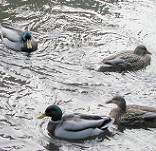 The Law Commission is seeking views on how wildlife law should be modernised and simplified and has launched a consultation, running until November.
The Law Commission is seeking views on how wildlife law should be modernised and simplified and has launched a consultation, running until November.
According to the commission the current law regulating wildlife is spread over a collection of Acts dating back to 1831, the original purpose of which of the law was to govern activities hunting, fishing and, of course, poaching. More recently that has expanded to the conservation specific species, ensuring the welfare of wildlife and now protecting local biodiversity from invasive species.
The result, says the commission, is a legal landscape that is "out of date, confused and often contradictory". For example, the hunting, management and welfare of pheasants is governed by four separate statutes.
The statement goes on the say that the principal modern Act – the Wildlife and Countryside Act 1981 – has been amended to such a degree that it is difficult for anyone to use who is not a specialist.
The proposals aim to simplify the existing complex framework, placing wildlife law into a single statute. They would also reduce the current dependency on criminal law by allowing an appropriate mix of regulatory measures, such as guidance, advice and a varied and flexible system of civil sanctions such as fines and bans.
Frances Patterson QC, the Law Commissioner leading the project, said: "The law must take into account the competing interests of all parties. With this project, we are seeking to achieve a balance between the needs of those people who want to manage wildlife and those who want to protect it.
"What we are proposing does not alter the levels of protection currently offered to wildlife, but it will help people understand what their obligations and duties are and what they can and cannot do, and ensure they are properly licensed to do it."
Experts in the various fields, as well as the general public, can access the consultation paper on the commission's website at www.lawcom.gov.uk.
• Ducks picture courtesy of freeimages.co.uk.